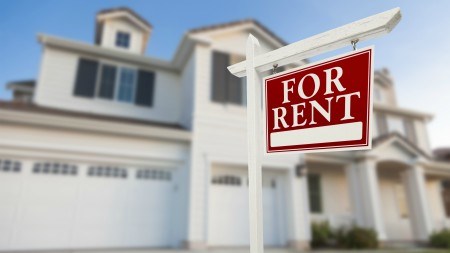When there’s a shortage of properties to let – as there is in many areas now – and rentals are rising, apartment hunters often feel pressurised to quickly sign a lease before the unit they like is snapped up by someone else and their search must begin again. But this can easily lead to ’renter’s remorse’ – a deep feeling of dissatisfaction that goes way beyond the dripping bathroom tap or the wobbly kitchen counter.
Of course, the only sure way to avoid this feeling is to take the time to shop around, thoroughly inspect some prospective homes, talk to neighbours or other tenants about conditions in the block you like, and visit at night and over a weekend to personally check on security and noise levels. And no matter how hard or long you look, there is no such thing as a ‘perfect’ rental property, so you will probably have to make compromises to find a flat that fits your budget.
However, if time is against you, scoring the apartments or townhouses you view against the following checklist before you sign a lease should go a long way towards ensuring that you have a happy tenancy.
1. Location
An apartment on the fifth floor may have a great view, but if the block is located in a run-down area, it would probably be better to give it a miss. You don’t want to live where you need an armed guard when you go out for milk at night, or where you are always worried about your flat being burgled while you’re at work.
2. Condition
The unit should be clean if not freshly painted, well-maintained and spacious, with plenty of cupboards. Plan your first viewing during the day.
3. Noise.
The best way to gauge this is to ask current tenants in the building about noise – whether it comes from residents who like to party late, a neighbour’s dog, the swimming pool area, nearby construction, or an airport or freeway in close proximity. You should also check that the bedroom windows in the flat you like aren’t above or opposite a nightclub, noisy business or busy road.
4. Building maintenance
It is really important to note how well the block itself is maintained. The view will soon lose its allure if the lift is frequently out of order, or if there’s a permanent funny smell in the lobby and the garden area is full of cigarette butts. You also need to be certain that the building has a security system that works.
5. Traffic.
In an effort to make themselves marketable to young professionals seeking to reduce their daily commuting time, many apartment and townhouse developments have been located close to highways and other main routes. However, the result can be high levels of noise and pollution, and disrupted sleep. Meanwhile, the amount of traffic can add significant time to your commute, even if the apartment is located relatively close to work.
6. Public transport
If you plan to use public transport, you’ll need to find out if the flat is close to a bus stop or railway station. Incidentally, the completion of the Gautrain project and the introduction of bus rapid transport systems in Cape Town, Durban and Johannesburg have boosted the accessibility of many areas where rentals are relatively cheap.
7. Parking.
You obviously don’t want to end up living in an apartment or townhouse that has no garage or carport and no parking space within a kilometre of your front door. And while the landlord or agent may say that there is a parking bay reserved for each flat, you need to know what happens if other residents’ guests keep parking in ‘your’ spot.
8. On-site facilities.
Check to see that the apartment has connection points for both washing machine and dishwasher. Failing this, it would really help to have a properly equipped laundry room in the block. Other on-site facilities that are nice to have include a pool, a proper play area if you have children, braai areas, a gym and a meeting room or ‘business centre’.
9. Prepaid meters.
Many flats and townhouses already have prepaid electricity meters, but it is becoming increasingly important for units to have their own water meters too. If they don’t, the city council water bill will simply be divided up according to the participation quota of the units in the block – and if you rent a big flat, you could end up paying more for water than a family of four in a smaller unit.
Article republished with permission of The Creative Group





